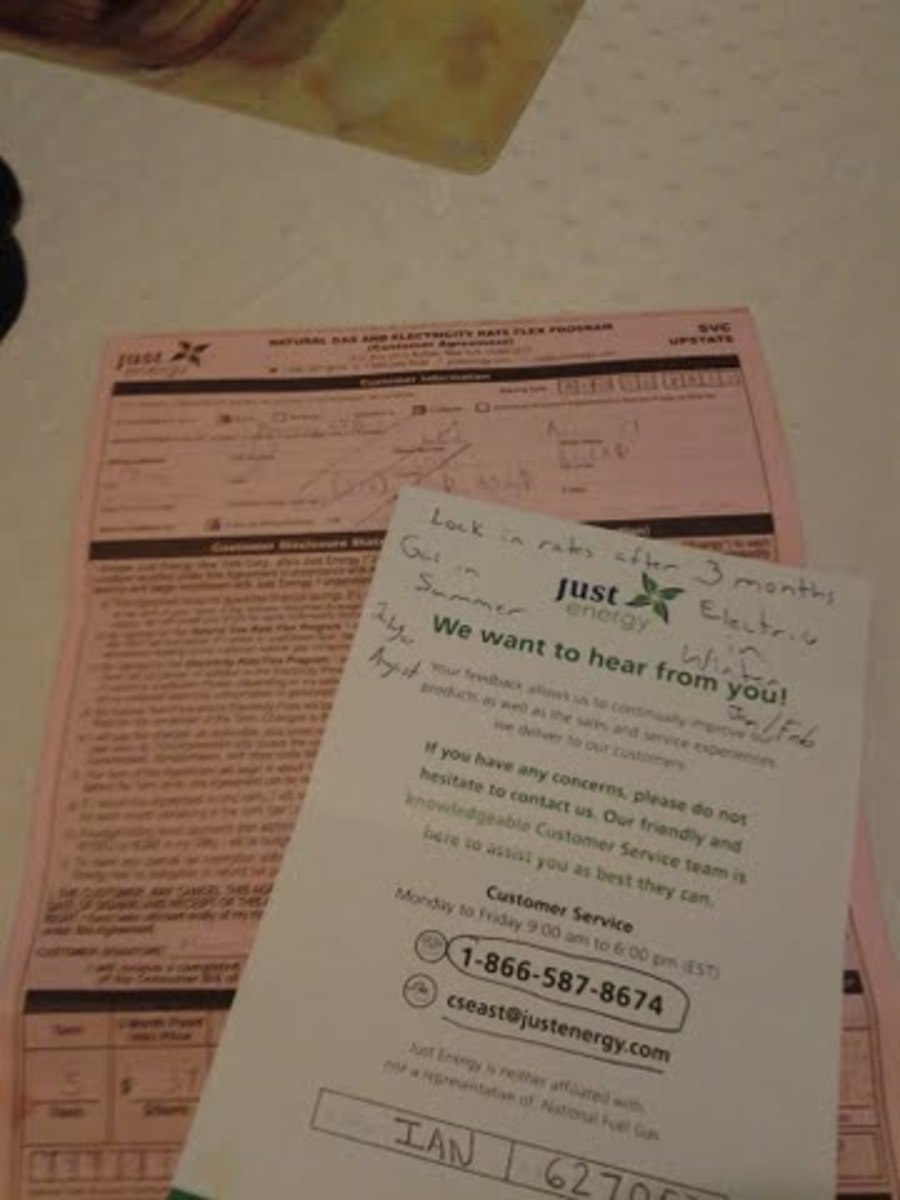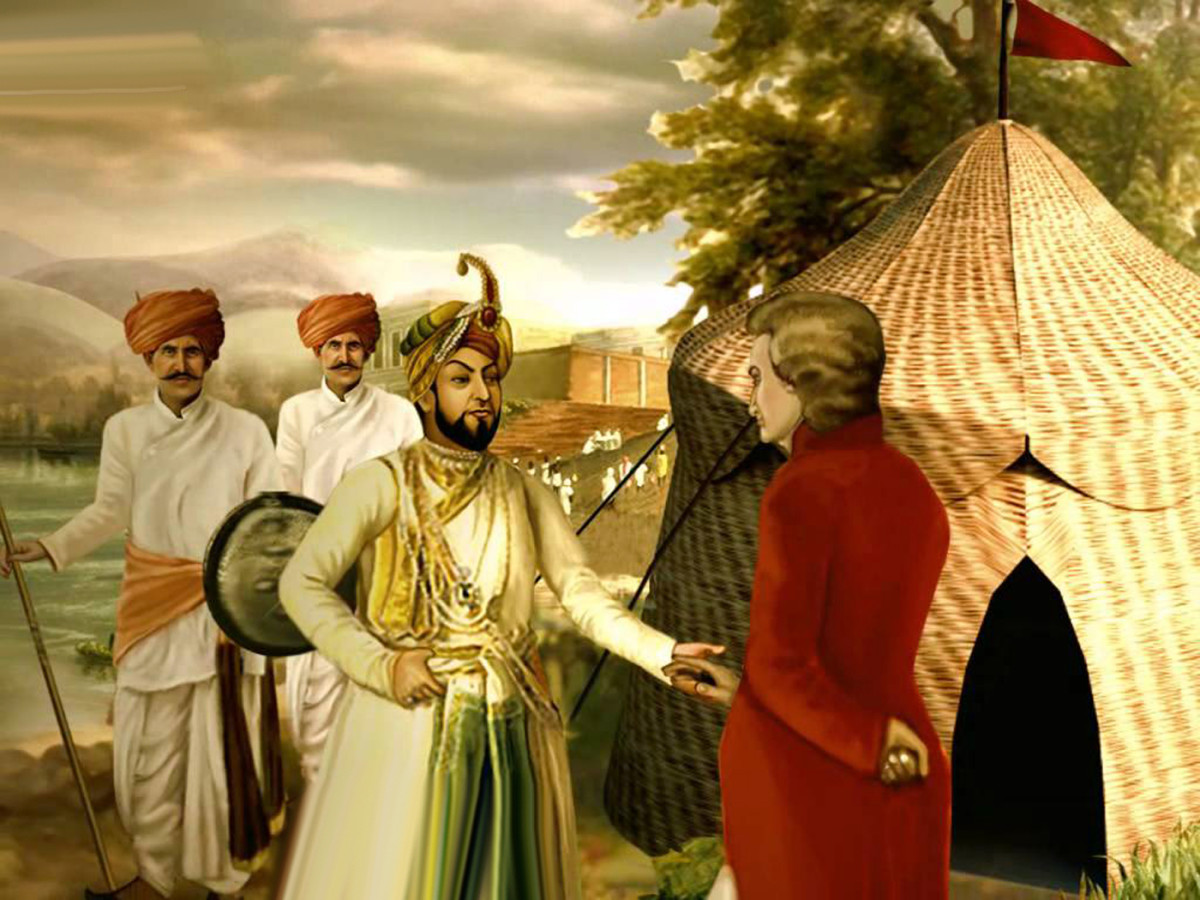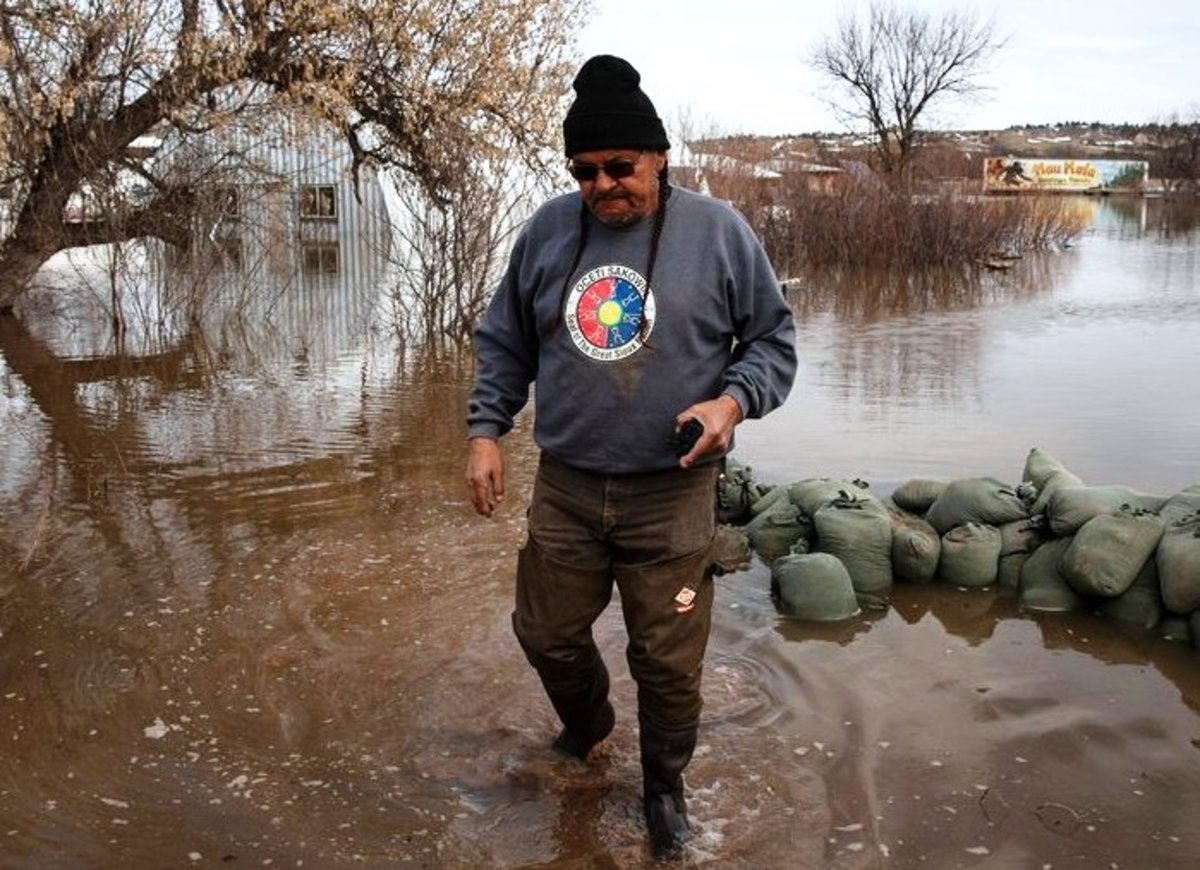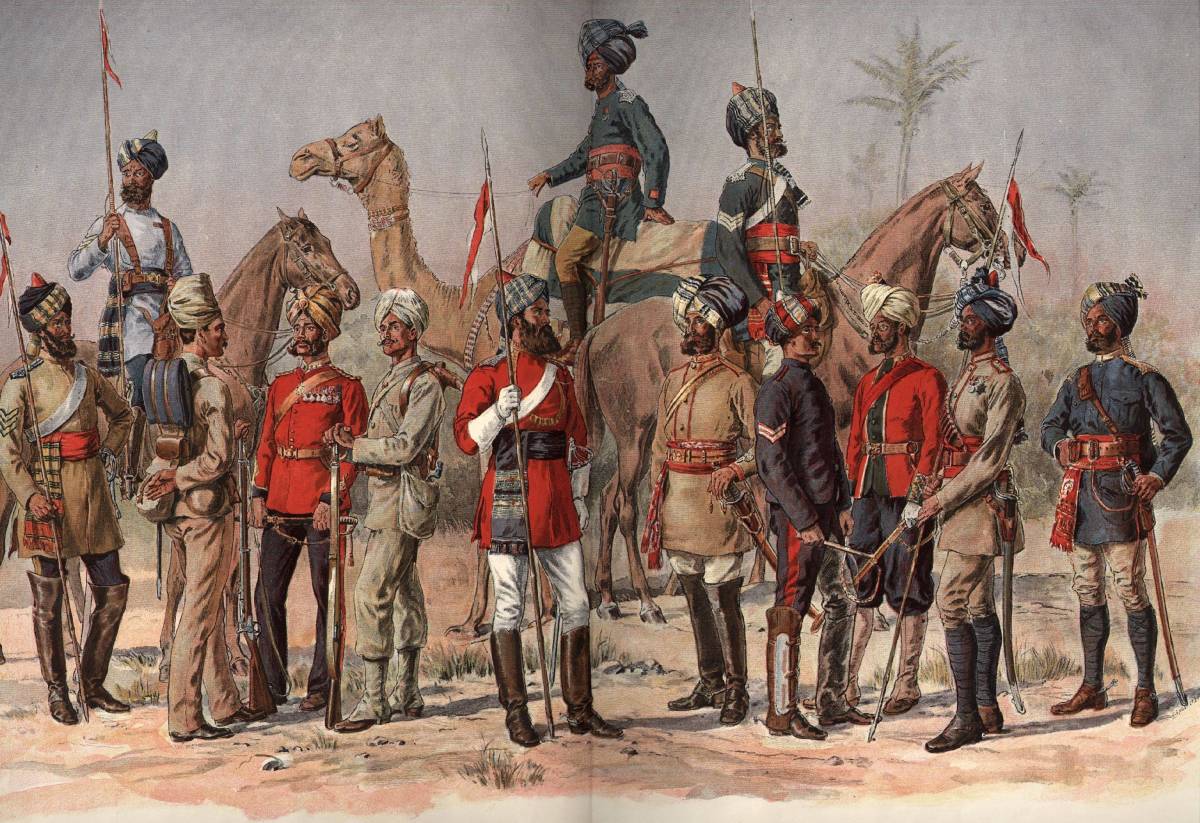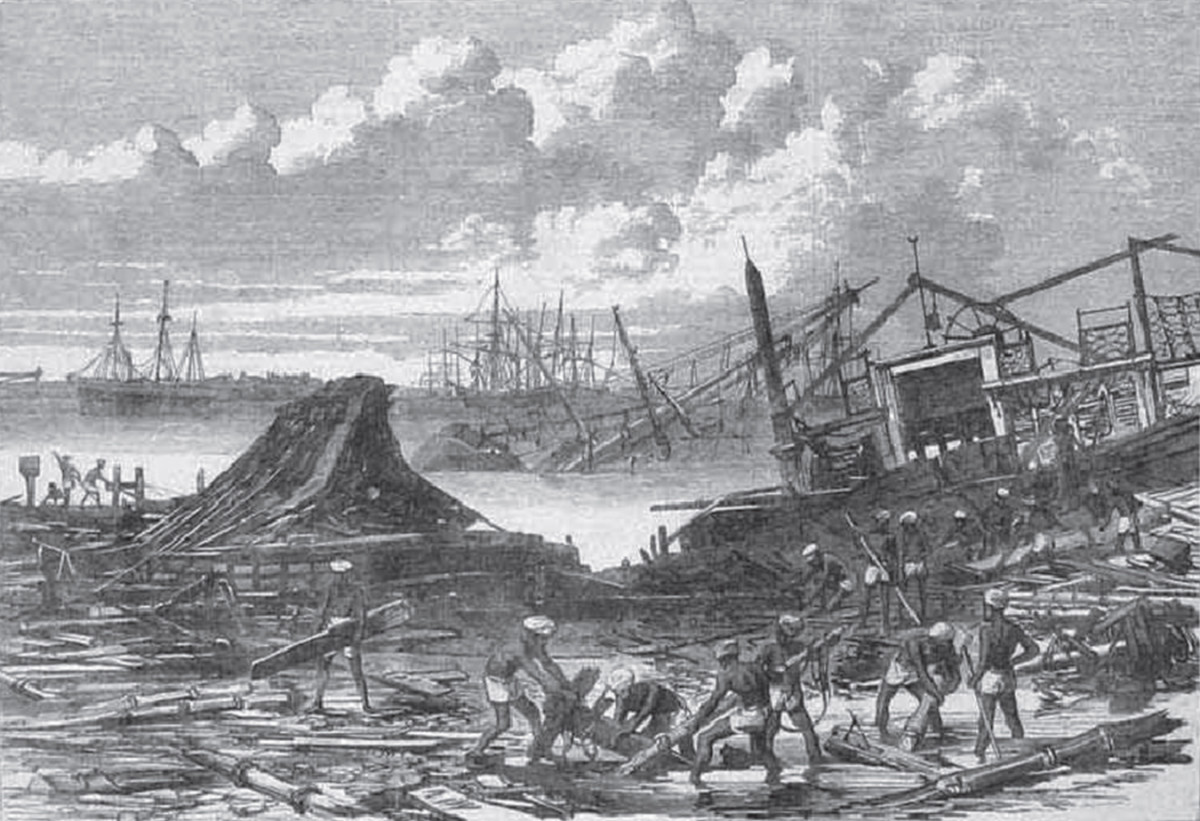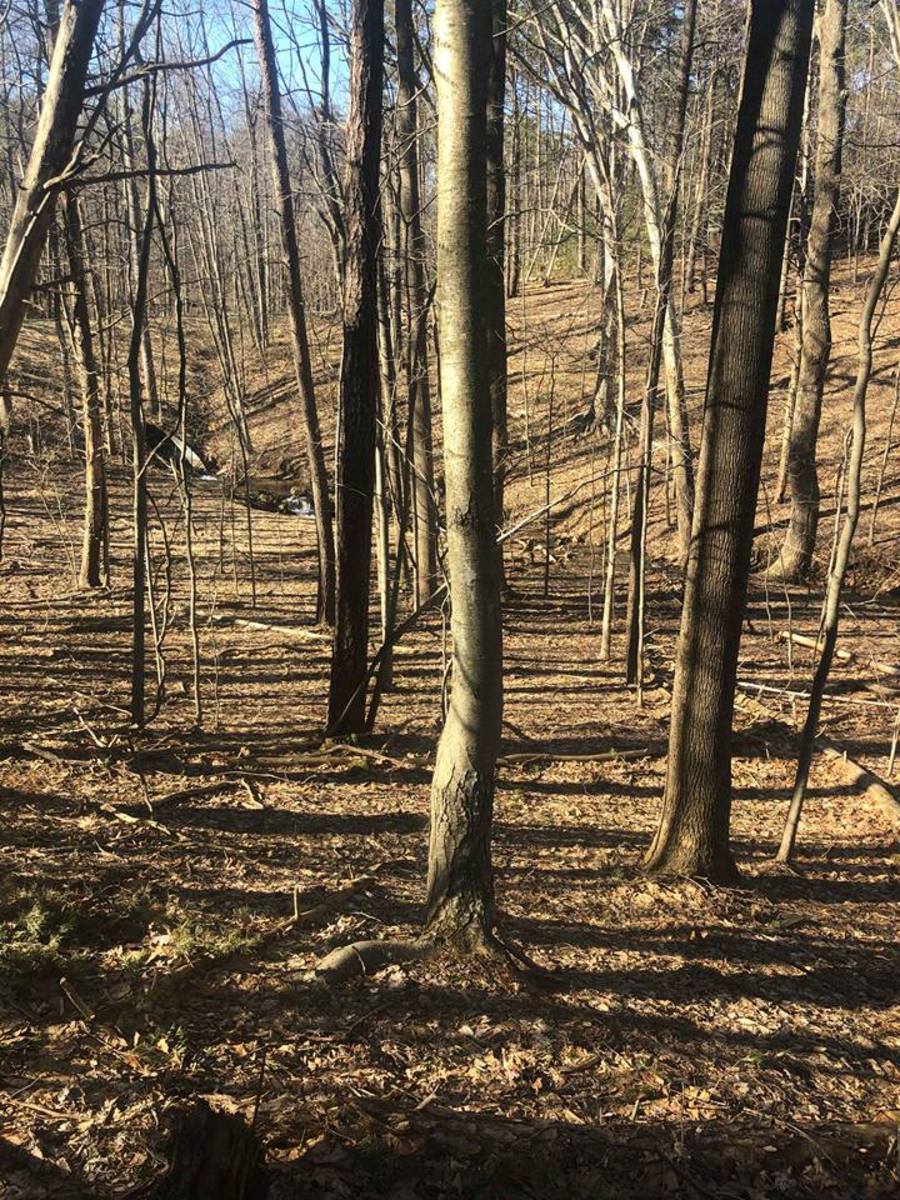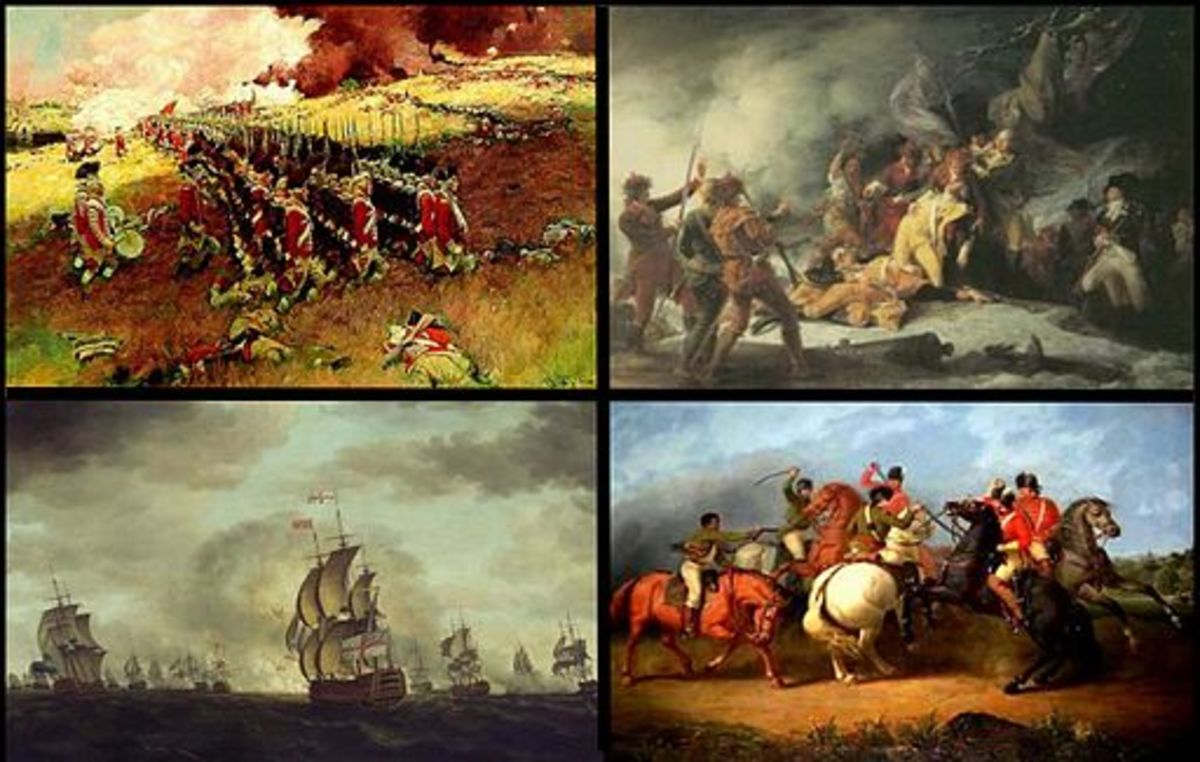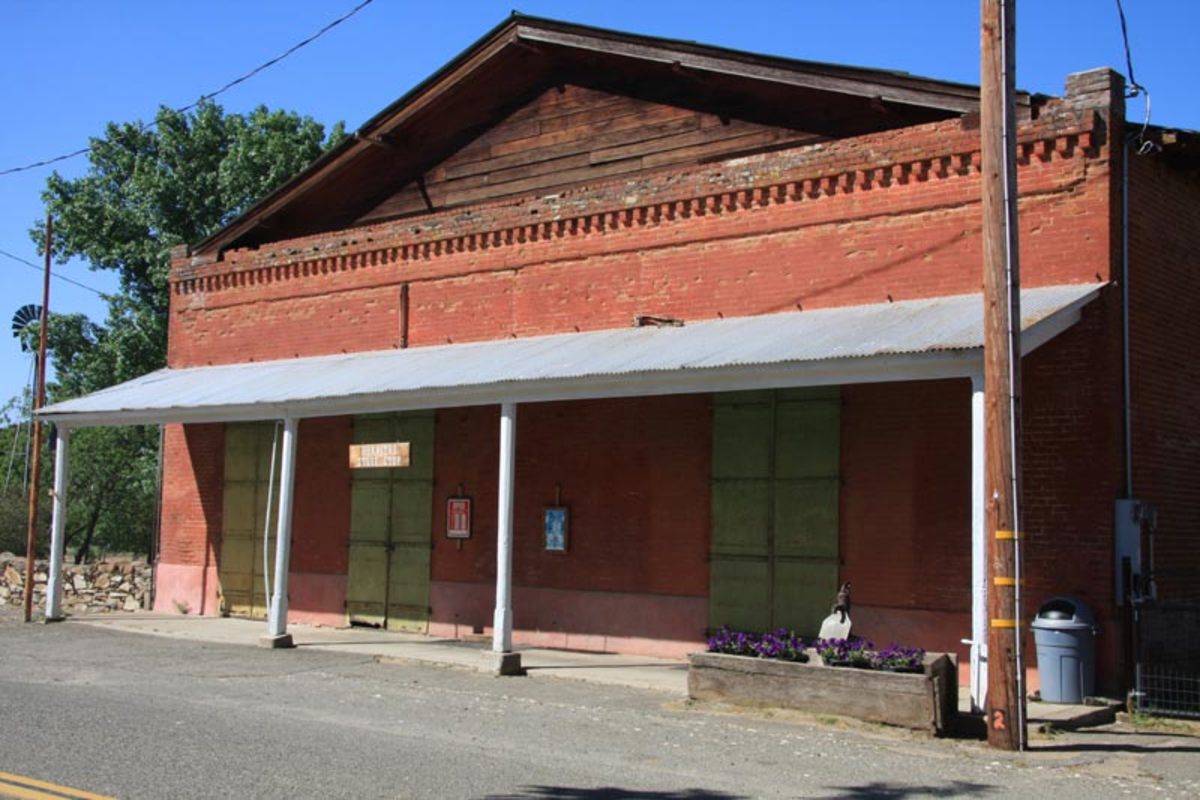Pagal Sahib (Part 3)
Pagal Sahib (part 3)
PAGAL SAHIB
By
A.D.Sarkar
Part 3.....
Strahan, an Irish youth aged 20 years in 1756, a sailor from his early teens who frequently jumped ship and became a self-appointed infantryman for the East India Company in Calcutta, was sitting leaning against a wall in the verandah of a mud hut in Black Town of Calcutta. Even at a quarter to seven in the morning the air was hot and humid which made the young Irishman uncomfortable. His tight breeches did not help. He wished he could wear loose garments like the Indians but the bosses would not allow a European to go native. A young Indian woman, probably a little younger than Strahan, was cooking over a small mud-built Indian oven fired by wood. She was cooking what most Indians call puri, but loochi in Bengal, unleavened bread deep-fried in ghee, in an oven baked clay pan. She served her guest and herself a dozen each of loochi and fried shak, spinach, and prawns. This was followed by Indian sweetmeats and a hot glass of milk. She had to eat these and drink the milk by herself because Strahan neither liked sweet things nor milk. Strahan wondered how she managed such a breakfast because only the well-to-do Bengalis eat that way.
She asked after breakfast, “Pagal Sahib, aren't you smoking?”
Pagal is an Indian word, meaning mad or eccentric depending on the degree of affliction from which a person is suffering. The name Strahan was also, quite likely, a misrepresentation by the Indians of, probably, the term Strachen. For some unknown reason the name stuck. Even the sahibs called him Strahan. The woman like many other Indians called him pagal. Strahan had a good working knowledge of Bengali so he new the meaning of the word but he did not mind in the least.
He got up and took out a long clay pipe from the saddle bag on the horse which he was riding this morning. He cleaned the pipe and filled it with tobacco from a pouch. The woman lit it with a glowing taper.
“What would your bosses do if they catch you with a horse?” asked the young woman. “You must have stolen it.”
Unusually, pagal sahib felt obliged to explain how an ordinary sailor/soldier could ride a horse and own it. Sailing or soldiering was really a hobby with Strahan. His main objective in life was to earn money and take his mother and siblings out of the dire poverty they have to endure in Ireland. It meant trading which was particularly profitable because the white employees of East India Company never paid any taxes, a bone of contention with the young nabab Sirajuddaula. Strahan practically established exclusive rights to supply the company with goats, cattle, chickens, eggs and ducks for the dining tables of the bosses and their European soldiers and other white employees. It was a huge task because the quantity involved was astronomical. Strahan had to obtain them at minimum prices and charge the company inflated amounts for his own profit. He captured and consolidated the market in Calcutta but about two years ago when the old nabab was still alive he went to the capital city of Murshidabad, some 80 miles north of Calcutta, to see if he could capture the market of the company's nearby Kassimbazar factory. He did not succeed but by chance he made good contact with a few Moghal junior officers who helped him with live animals for slaughter often free in return for silk, muslins and utensils from the company. Strahan obtained the silk etc. by bribing appropriate white and Indian employees of the company so he was delighted at getting richer and richer as months went by. Some of the high ranking Moghals also got to know him and liked him enough for him to join their hunting activity known as shikar. The object was to go in a group and hunt birds and beasts. There were always more dead birds and boars than the hunters and their parties could make use of. They gladly gave it to Strahan who managed to sell them to the British at Kassimbazar and even to the French at Chandernagore or the Dutch at Chinsura.
There was this military commander of the old nabab. He was Mir Zafar who married the sister of the old nabab. They had a son called Miran rather an indolent, dissolute and extravagant young man at whom charged a wild boar during a shikar. Strahan stepped in and pushed him out of the way but in the process the sahib lost his balance and fell. The boar turned around and attacked wounding him badly. Mir Zafar was grateful, so much so that he took care of him and when he was fit again he gave Strahan money, a horse and a bullock cart with bulls to take away by ferry to Calcutta. Strahan had a house in No-Man's land with enough land to keep all the gifts the Moghals gave him. The company bosses did not mind him riding his horse provided he did not do it anywhere near the bosses.
The woman took the dishes away, cleaned the place up and sat down by Strahan.
She asked, “What are you doing here? Don't say you have come to see me!”
“Not at all,” replied Pagal Sahib shaking his head from side to side. “I want to know
why you left me after living with me for only a year.”
“To save my life,” she replied. “You are a violent man. You beat me without provocation”
“Only when I got drunk.” replied Strahan blandly.
“And that was every night,” said the woman with disappointment.
“Who is this fellow you are living with now?” asked Strahan.
She would not tell him for fear of reprisal from pagal sahib. Strahan knew. “He is a blackie like you. I know who he is. Where is he this morning?”
Strahan guessed correctly that he had gone to Chitpur redoubt to do some labouring for extra cash. The East India Company council has taken intelligence report very seriously. The nabab or rather his close friends Mohan Lall and Mir Madan have been active preparing for a military expedition to Calcutta from Murshidabad. It was the opinion of the military hat his vast army would come from the north and Chitpur is the place to offer the first resistance, Engineers are looking at the bridge and fortifying the redoubt. There is an urgency to it; hence the recruitment of casual labour. This fellow, his one time woman has shacked up with, has to be there. True enough, he found the man whom he knew quite well sitting under a tree yards away from the redoubt smoking a bidi, an Indian cigarette. Typical, these blacks Strahan said to himself, even in emergency they would evade work whenever possible.
“Stand up you skiving b*****d,” shouted pagal sahib menacingly. “You stand up you is-skibing bud,” came a defiant answer in English. The sahib wondered how and where did this black fellow learn his English. He lifted him up and shouted, “You insolent shooer-ka-bachcha”
The man hissed as a cobra does and answered in Bengali “Your father is a son of a pig.”
Strahan did not feel insulted for the man dragging his father into the fracas but he never experienced a native talking to a white sahib this way. He punched him hard in the face. The man keeled over but soon got up and head-butted the sahib in the stomach. They both wrestled for a couple of minutes. Strahan desisted from further combat and, unusually for him, walked away.
He went home, cooked his own lunch and, after siesta, bathed and got dressed up in his soldier's uniform. He hired a camel-cart and arrived at brahman sahib's house late afternoon. He saluted brahman sahib and said, “Reporting for duty Sir.” Brahman sahib saluted back, smiled and said,”Let us go.”
All that Strahan knew about brahman sahib was that he was a very educated man. He read Sanskrit which enabled him to read ancient Indian philosophy. He knew a lot about Indian culture and history. He was not a member of the company council but he had a high position in the company, ordinary people did not know what. This afternoon he was going to meet his friend Warren Hastings who was the top man managing company affairs up north near the capital. He was sailing along the river Hoogli docking somewhere by Barrackpur about 10 miles north of Fort William. Brahman sahib was taking a carriage to fetch him. Strahan was given the high honour of sitting inside the carriage with another similarly armed soldier. They were there as bodyguards in addition to a dozen armed horsemen in the front and rear of the carriage, divided equally.
Strahan listened to their conversations with great interest on their return journey, especially when brahman sahib gave the history of Marhata ditch at his guest's request. The gist of what brahman said was as follows:
“Hindus inhabited, as I know it, an area between the east of the Hindu Kush mountain
to the border of Burma and of course from Kashmir to Ceylon as we call it. Their land was always invaded and from 8th century onward they have been ruled by Moslems. At the moment the rulers are the Moghals, the offsprings of a central Asian tribe. About a hundred years ago Aurangzeb, the son of Emperor Shahjahan who provided funds to build the Taj Mahal, occupied the throne at Delhi after murdering his brothers and putting his father under house arrest. He ruled for 50 years but all he seemed to know was Islam and its propagation. His sole ambition seemed to be the forcible conversion of the number one infidels, namely, Hindus. A great iconoclast, he destroyed Hindu temples and works of ancient art because, to him, they were unholy being outside the tenets of his own faith to which his ancestors were converted by Arabs and Turks, the latter a ruthless imperialist predator. He imposed extra tax on the infidels and spent most of his time fighting the kings of Deccan, southern India. The Indian kings were busy fighting between themselves and were weak and unpatriotic but a great Hindu hero came forward.”
“He was a Marhata named Shivaji from a land far away to the west from Calcutta. The Hindus hoped that at last India would be rid of Moghal rule as he attacked the emperor's army. He used guerilla tactics using a band of horsemen. They were light and quick while the emperor's army was cumbersome and unwieldy. Aurangzeb's army could not cope with the hit and run method of Shivaji's horsemen. The Moghal power crumbled after the death of Aurangzeb in 1707.”
Strahan interrupted much to the consternation of the other soldier. He said, “I am telling you this Sirs. If this Zeb fellow did not die I would have sneaked into his bed chamber in the middle of the night and cut his head off with my cutlass. Insulting my Hindu friends! How dare he!” The second soldier apologised on behalf of pagal sahib. They were supposed to be alert but sit respectfully. On no account were they entitled to speak unless spoken to by the big bosses, who ignored the Irishman.
Warren Hastings asked, “I understood that Fort William came into being in 1690 as did the city of Calcutta although not fully developed as it is now.”
“Yes, that is surely true. It was more than half a century ago when Job Charnock founded the city. It grew as the British trade expanded rapidly with time. It is a beautiful city now and opulent. Life is very good for those of us who are lucky enough to survive. You know, I hope, that Francis Day built Fort St George in Madras in the south, probably as far as Delhi is from here, half a century before our fort in Calcutta in the north.” Warren Hastings nodded to indicate that he did not know but asked brahman sahib to tell him more about the Marhata Ditch. Brahman sahib began again:
“Unfortunately for the Hindus and indeed majority of the Muslims also the successful Marhata army broke up into bands of brigands after the death of Shivaji. In Bengal they were known as vargis. The vargi horsemen would gallop hundreds of miles, come to a town and shout,' Give us rupees, give us rupees'. Those who could pay were spared. Those who could not were tortured and put to death. The Hindus and Muslims alike suffered in their hands. They killed old men, women and children and carried away the young girls. They struck terror in the hearts of the people.
The company council worried. If the vargis attacked, there was no way they could be repelled. There was this Captain William Holcombe, commander of the Calcutta militia who was concerned. He said there should at least be a few gun posts guarding the city perimeter. So a redoubt was built at Chitpur bridge with four cannon. To be on the safe side, a four canon post in the south and a three cannon fortification was established in the middle of the city. Strangely, Indians were critical of the commander's strategy. It was a bit presumptuous on their part because after all what did they know about the workings of the military! They, however, knew the weakness of the vargis. If they could be unhorsed, the Indians were confident of chasing them out of the city with sticks and stones. So their solution was to dig a deep and wide ditch around the city which the horses could not jump. They recommended the width of the ditch to be at least 10 yards.
Holcombe left Calcutta for some reason to be replaced by Captain Scott. He spoke Bengali and Urdu. The Indians liked him. They were unanimous that Captin Iscot was a very good sahib. He was worried though. He noted that Fort William was surrounded by tall houses. Any shots from the fort would only hit the buildings. He suggested that a new fort be built by Chitpur up north or in the south by Surman's gardens. John Company dismissed the idea outright on account of the very high cost the project would entail. The Indians insisted that the ditch be dug. The company gave them a loan of 25,000 rupees and the Indians hired labourers promptly and a ditch was dug quickly. Captin Iscot worked out how wide and how deep the ditch should be.”
“Excuse me Sirs. Why did the ditch not encircle Black Town?” asked pagal sahib. He should have been punished for speaking again without permission but the big sahibs did not think he was being impudent. Brahman sahib thought it to be a legitimate question. He explained that in the early days Indians and Europeans lived together but the company and the decision makers in London disapproved. Once the Marhata ditch was dug, all the natives were forced to move east of the ditch which formed the black town. White town started from the eastern bank of the river Hoogli and ended on the west bank of the ditch. It was totally segregated from Black Town inhabited exclusively by Indians by an area east of the Marhata ditch named No-Man's Land.
Strahan spoke again. “The blackies are dirty people Sirs. They throw rubbish in it. It is nearly full now. The vargis could ride over it.” The carriage was stopped and Strahan got thrown out. Warren Hastings said to the other soldier that he might as well go home and turned to Brahman sahib. He said, “He is incorrigible isn't he? But he has got a point. It will be easy for the Marhatas if the ditch does not function.”
Brahman sahib said, “They never came. I think they have discontinued their activities. The bands have taken their natural course and dismantled.”
The following morning a palanquin headed towards the Marhata ditch from the fort.
The palanquin had a curved roof, the curvature extending right to the flat base. The convex front and the back wall had two long shafts each which rested on the shoulders of four men, two in the front and two in the back. The sides were totally open and inside the palanquin sat Governor Drake dressed in silk and jewels with a hat much larger than his wigged head. The palanquin bearers wore dhotis which extended up to their knees and cummerbands over full-sleeved collarless shirts reaching a little below their waists. They wore what looked like caps and their heads were held straight, one hand clutching the shaft and the other swinging back and forth. They made a guttural, nasal sound each time they exhaled, a sort of 'hei, hei' in unison.
In front of the palanquin was a tall liveried man with a colourful turban who carried the wand of office which landed now and again on the backs of Indian onlookers if they came too close to the Governor. The Governor was flanked by retainers. European soldiers with sabres drawn followed on horseback. A second palanquin behind that of the Governor carried Council Member John Zephaniah Holwell. A third behind it carried Council Member Charles Manningham. There were more soldiers following the palanquins on horseback but without their sabres drawn. The procession entered Halsibagan, the Marwari businessman Omichand's garden as the sahibs called it.
The garden was littered with tents, red, yellow and saffron in colour. They were arranged Moghal fashion in rows spaced far enough for camel carts or bullock carts to get through. The tents were for the visitors from fort William only to be used as they pleased.
Omichand received the three dignitaries himself. His obsequiousness was only matched by the obscene fat he carried on his body. The sahibs sat down in the garden in roomy, expensive chairs with Omichand who had to remain standing and smoked a hubble bubble through a long coiled tube and drank arrack. Omichand neither smoked nor drank but simply stood respectfully as he played with a gold glass containing a sweet drink with rose water.
Drake came to the point. He asked, “What do you think of the young nabab?”
Omichand was shrewd. He knew what the British potentates would like to hear. “He is horrible,” he said. “He is dissolute and headstrong.”
“But he has a very large army has he not?” asked Manningham.
“But Sir,” replied Omichand, “No army is any match for the mighty British.”
Holwell was pleased. He clapped his hands as he exclaimed, “Hear, hear.”
Drake was less sanguine. He said, “I don't know about that. But tell me. Isn't it a fact that there is at the moment tremendous court intrigue to carry out a regime change?”
“Yes Sir, replied Omichand without hesitation, “he is opposed by many.” He was rubbing his hands in a servile manner as he continued, “There are his aunt, Ghasiti begum and his cousin, Shaukat Jang, the Governor of Purnea in the province of Bihar; then we can say that Mir Zafar, his grand uncle-in-law and commander-in-chief of the army is very much against him. In fact he covets the masnad, throne, himself. Honourable Sirs if you promise him the throne he will fight against the young fellow himself and let you have an easy victory. There is tremendous tension between the Muslim noblemen and the Hindu revenue collectors or army officers. How can the suba, a mere inexperienced youth survive all this.?”
“Do you hate the suba, the nabab?” asked Holwell.
Omichand smiled broadly as he replied, “I am a humble merchant kind Sirs. Who am I to hate an august person such as the suba?”
“You like the British though, don't you?” asked Manningham.
“Of course your Excellency,” enthused Omichand. “Have they not protected me? Have they not allowed me to stay inside the white town?”
Drake interrupted, “Yes, yes. We allowed you and Govindaram Mitra to stay with us, you know the black zaminder! We don't see much of him though.”
Holwell said, “I see him not too infrequently.”
“What does he do?” asked the Governor.
Holwell replied, “He is very useful to us. He collects taxes due to the company. Often small disputes among the natives are settled by him in accordance with British legal code; saves my time at the cutchery you know. It leaves me free to deal with the white residents only.”
Omichand had some news but before he could divulge the facts he asked permission to sit down. Two big retainers brought a small rug to put down on the floor. Upon it they placed a thick white mattress and helped the master to sit down. He then said truthfully, “Excuse me Sirs. I have heard that both the Afghans and the Marhatas are conspiring the demise of Moghal rule in India. If they succeed they would surely attack the domain of Bengal, Bihar and Orissa. I know that nabab Sirajuddaula is worried about it.”
“In that case,” asked Drake, “Do you think he might make an alliance with us to defend his territory?”
Omichand kept silent. He did not know what would be the right answer. Fortunately Holwell saved him. He was a bit tipsy by now so, with eyes half-shut, he asked,” He has got a lot of concubines, hasn't he?”
“Oh yes your Excellency,” came the obliging answer. “Hundreds and thousands of them. The Portugese brought him a lot from your country, Europe that is; then Armenians, Bengalis, women from up country. They are all first class sahib. I have heard that Mir Zafar and his son, Miran, will do their utmost to get rid of the current suba just to inherit his harem.”
“So if we sent an army you think the nabab will not stand a chance?” asked Drake. Omichand agreed.
It was 1.00 pm. Dinner was served. It was Moghal cuisine totally cooked by chefs from Delhi. Omichand had resources. He knew how to please. There were Persian wines together with Madeira and port from Europe.
Omichand regretted very much that he was fasting that day as his religion dictated. Actually the reason was that Omichand was jain who were more rigid in their dogmas laid down by religion than an orthodox upper class Hindu would be. He would not even touch meat or alcohol. To compound his problem, the sahibs were melechchhas, the unholy race who crossed the ocean, did not wash, ate animals and fornicated with lower class native women. He, however, was grateful to the sahibs for their tolerance of other religions unlike the Moghals who were ruling India currently but eating with the sahibs was out of the question. Omichand was holy by birth.
The bosses of John Company knew that their host was dissembling but true to their racial proclivity they had a pragmatic view of life. At any rate such a mouth watering repast and the Madeira and port were all worth almost anything.
It was 4.00 pm when they finished their dinner. They slept for four hours and around ten at night, Omichand arrived at the sahibs' tent and escorted them to a very large marquee where musicians were already tuning their instruments. The sahibs did not like the music very much but became excited when the female professional dancers arrived. They danced in groups for the sahibs to drink and watch until supper time the following morning. Their dance was artless but suggestive and sensuous. They wore colourful skirts of Rajputana and just enough garment to cover their breasts. They adorned themselves with gold and silver.
Omichand said, “These dancers come from far away Kashmir. Have you seen their complexion? They are fairer than me even and as fair as you nearly. They will be glad to be of further service to you in the privacy of your bed chamber.”
As the high officials made use of the services of the dancing girls, an orgy was in progress about half a mile away in the garden where the soldiers were provided with accommodation in very long simple tents. They were not supplied with women but prostitutes were smuggled in by Omichand's servants who gained fine pecuniary benefits from the rank and file sahibs. They were having unimaginable fun until the entry of pagal sahib who also accompanied the Governor's entourage the day before.
He annoyed everyone by claiming that all the women were his and eventually fighting broke out. Pagal sahib exchanged blows, broke furniture and used bad language. He left the women alone who by now were fleeing from Omichand's garden.
Governor Roger Drake, his fellow council members and soldiers and servants were ready to leave for Fort William at four that afternoon. Drake gave Omichand a letter for the nabab. Omichand bowed deeply and said that he was on his way to Murshidabad to attend the nabab's durbar. He would be glad to deliver it then.
The man with the wand cleared the crowd whenever necessary ruthlessly. The bearers of the palanquins trotted forward as they exhaled 'Hei,hei' and, occasionally, cleared the sweat from their brows with the forefingers of their free hands. The soldiers and their naked sabres looked picturesque. Those at the rear looked fresh in spite of their nocturnal exhaustion. But there was no sign of pagal sahib.
----------------------------------

